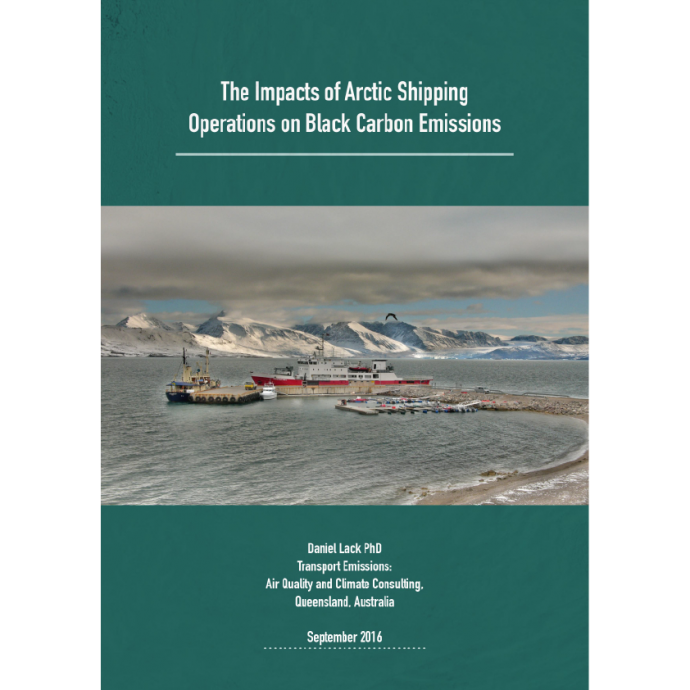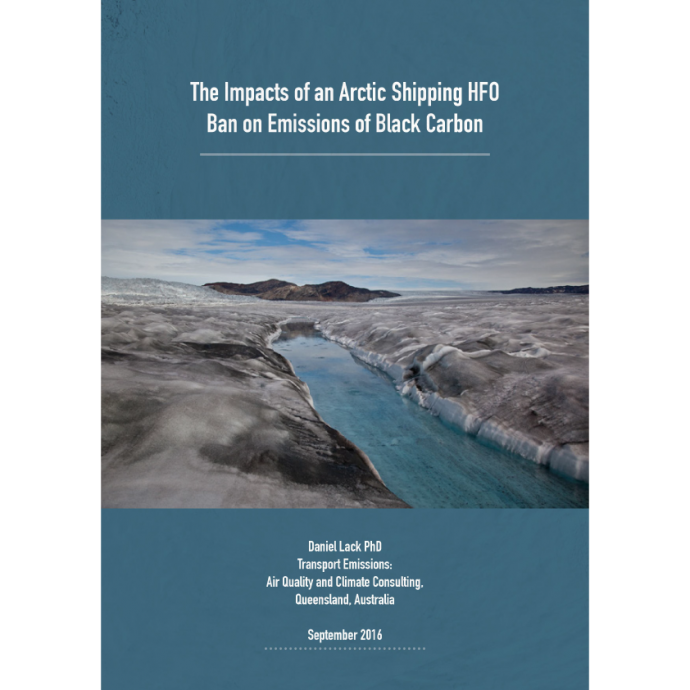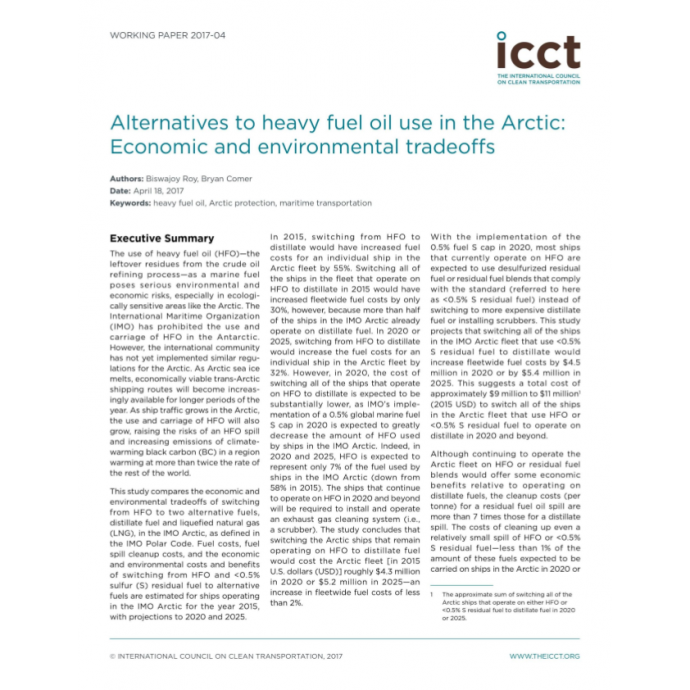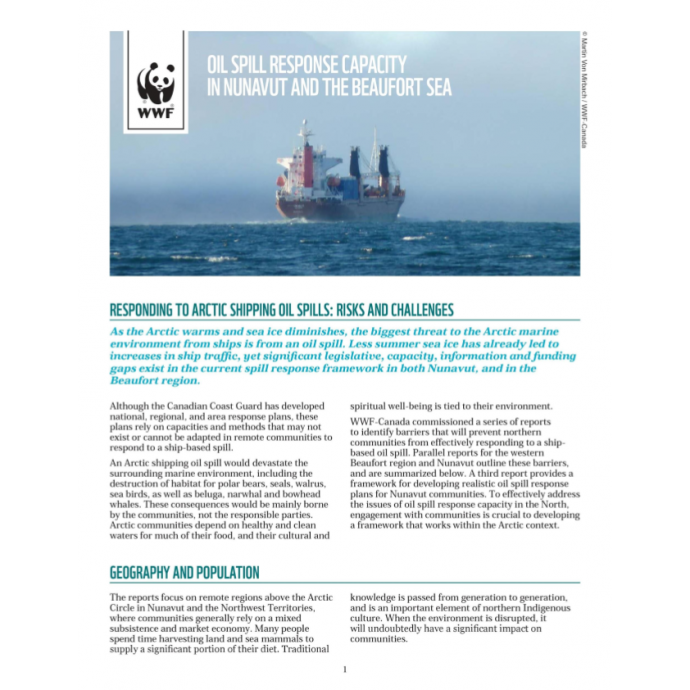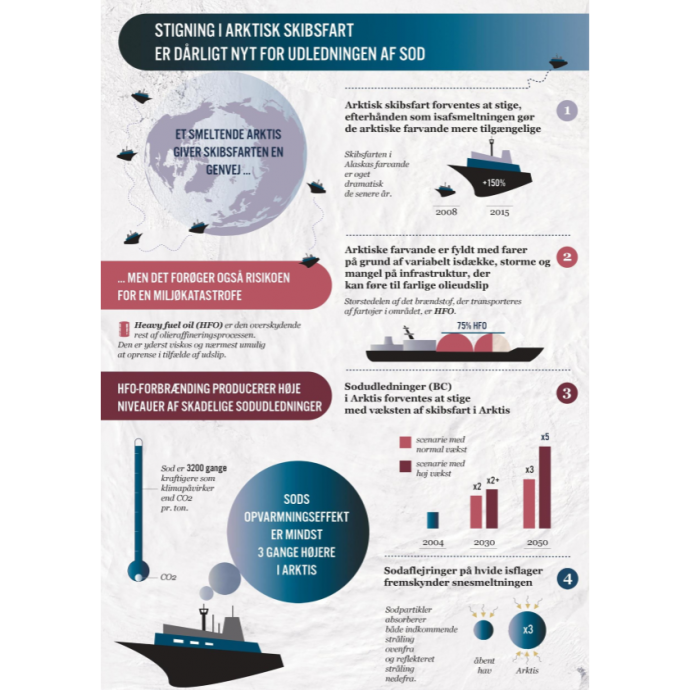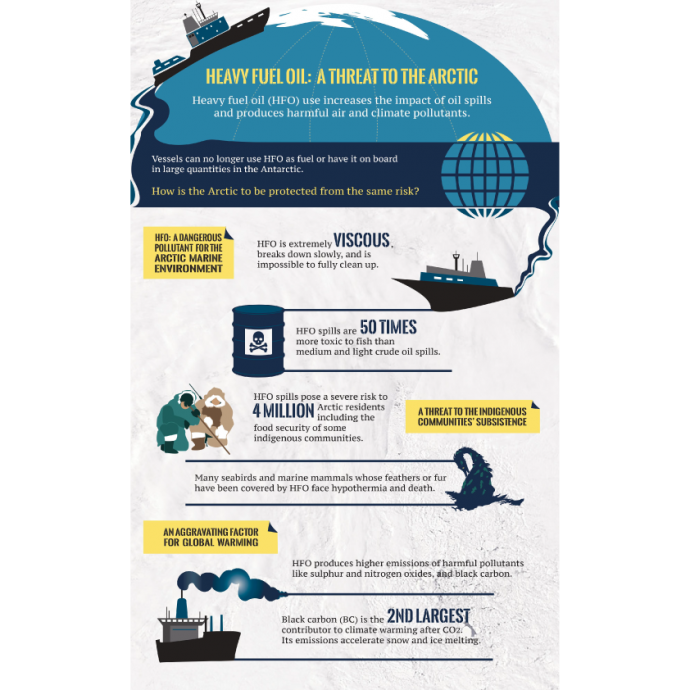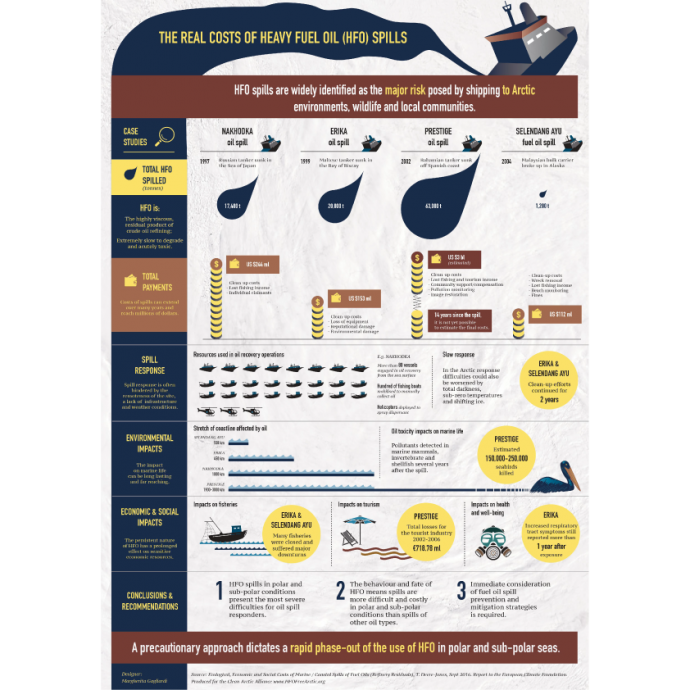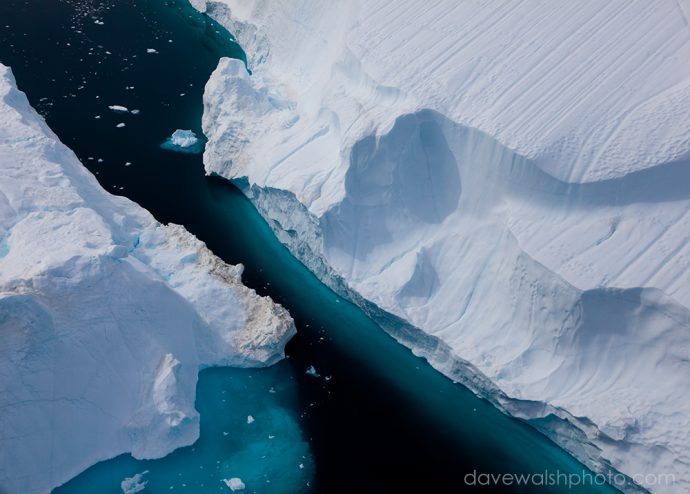The impacts of Arctic shipping operations on Black Carbon emissions
A report by Daniel Lack PhD
This study looks at how variable factors specific to Arctic Ocean sailing impact on ship propulsion, and engine efficiency and how Arctic shipping needs to adjust its fuel consumption to the changes experienced. The reports delves into the complexity of BC emission predictions and the technical choices that will need to be made for the reduction of BC emissions from today and future Arctic sailing operations.

